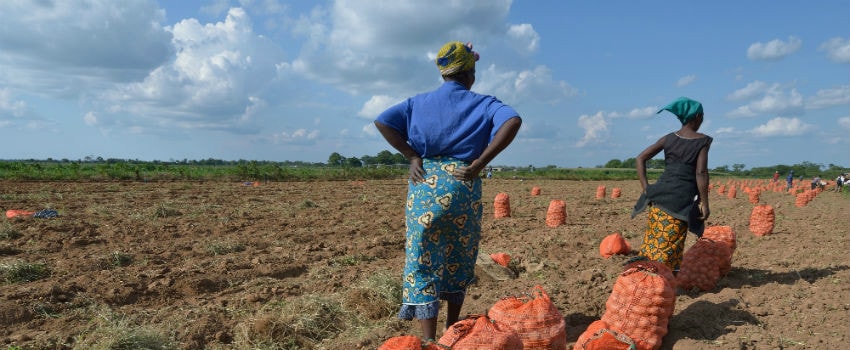
Harsh working conditions for little money are common practices on farms and plantations that supply fruit and tea to the UK’s largest supermarket chains according to the latest research from Oxfam. Supermarkets in their relentless desire to offer the lowest price as well as maximise their profits is resulting in poverty, abuse and gender discrimination across their supply chains. Oxfam conducted numerous interviews at tea plantations across the Indian state of Assam where they found cholera and typhoid to be common.
No water or plantations
Workers at the plantation did not have access to safe drinking water and toilets. Half of the workers interviewed also have government ration cards because their wages are not enough to get them through the month. Female workers are typically amongst the lowest paid and do the most labour-intensive work. Women typically work up to 13 hours a day doing back-breaking jobs. In North-East Brazil women with children say they have to depend on family or the government to feed their families when it is not harvest season.
Not protected
Workers say they also develop allergies and other skin diseases thanks to the pesticides and chemicals used on fruit and vegetables that are supplied to supermarkets. An Oxfam spokesperson says the supermarkets obtain the largest share of the price shoppers pay for their fruit, veg and tea. For example, 100 grams of Assam tea cost 79 pence, of which, the brands and the supermarket receive 49 pence and workers receive just 3 pence. If the workers on the tea estates of Assam received 5 pence more, they would achieve a living wage.
Global campaign
A separate survey polling 500 farm and plantation workers globally found there was increasing evidence that poor wages and abuse are prevalent across the food sector. According to survey results, 75 per cent of workers claimed they weren’t being paid enough to cover their costs and nearly a third said they were not protected from injury or harm, whilst at work and were not permitted to visit the toilet or drink water when necessary. Oxfam did the research as part of a global campaign that seeks to improve the lives of millions of people all over the world producing food for supermarkets.





